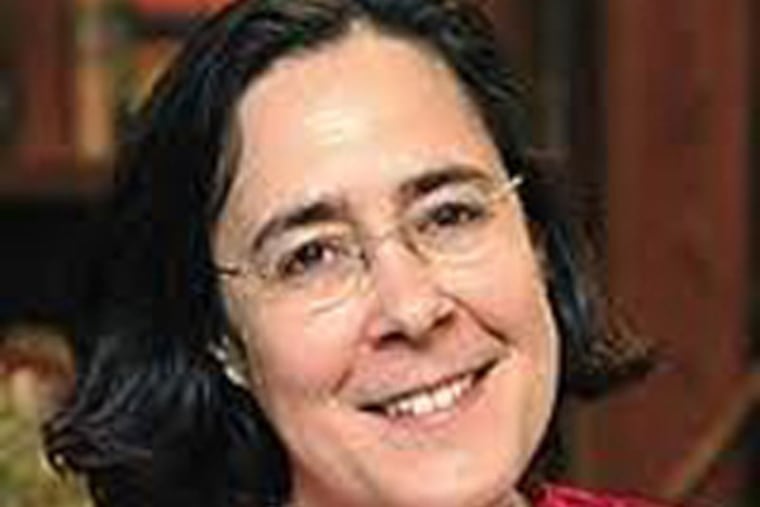Maria Rosa Menocal, 59, professor of medieval Spain
Maria Rosa Menocal, 59, formerly of Philadelphia, a Yale University professor and scholar who studied the interactions of Jews, Christians, and Muslims in medieval Spain, died Monday, Oct. 15, at the home of a friend in Killingworth, Conn., after a three-year battle with melanoma.

Maria Rosa Menocal, 59, formerly of Philadelphia, a Yale University professor and scholar who studied the interactions of Jews, Christians, and Muslims in medieval Spain, died Monday, Oct. 15, at the home of a friend in Killingworth, Conn., after a three-year battle with melanoma.
Dr. Menocal was born in Havana. When she was 7, a year after the Cuban revolution, she came to Philadelphia to join relatives.
Her family eventually settled in Wayne, and she graduated from Radnor High School. She earned a bachelor's degree from the University of Pennsylvania in 1973; a master's degree in French from Penn in 1975; and a doctorate from Penn in 1979 in philology, the study of language as used in literature.
She was an assistant professor at Penn and acting director of its Center for Italian Studies before joining the faculty at Yale in 1986. From 2001 until earlier this year, she was director of the Whitney Humanities Center at Yale.
"Maria Rosa Menocal was among the most brilliant, creative, and original of Yale's extraordinary scholars," said Yale president Richard C. Levin. "She was a humanist in the broadest sense of the term. She was passionate about all forms of human expression from literature, the visual arts, and politics to cooking, professional hockey, and the musical troubadours from medieval Provence and al-Andalus to Bob Dylan."
Early in her career, Dr. Menocal lived in Cairo and studied Arabic. She also lived in Spain and France, her husband, R. Crosby Kemper III, said.
A fellow of the Medieval Academy of America, she was a visiting lecturer or professor at Bryn Mawr College, the Institut du Monde Arabe in Paris, and the American University in Cairo, among others.
Dr. Menocal coedited The Cambridge History of Arabic Literature: The Literature of al-Andalus. The book places the Arabic literature of Islamic Spain in the context of other languages and cultures of the Iberian peninsula.
In 2002, she published The Ornament of the World: How Muslims, Jews, and Christians Created a Culture of Tolerance in Medieval Spain. The book challenged the notion of inevitable polarization of Islam and the West in the popular imagination, her husband said. The Ornament of the World has been published in numerous languages, and a documentary for public television based on the book is under development.
Her other books include Shards of Love: Exile and the Origins of the Lyric and The Arts of Intimacy: Christians, Jews, and Muslims in the Making of Castillian Culture.
Dr. Menocal had been working on a book about Cuban exiles for several years and had interviewed relatives who fled Cuba and settled in Pennsylvania, New York, Arkansas, Mexico, and Spain.
She and Kemper, director of the Kansas City Public Library, met five years ago when he invited her to speak at the library. She agreed to do so if he took her to lunch at Arthur Bryant's Barbecue in Kansas City, he said. They married 15 months ago. She insisted that the apartment they shared in Kansas City be within walking distance of a food market where she could purchase the freshest fruits and vegetables. She continued to maintain her apartment in Manhattan, close to the Union Square Greenmarket, he said, and cooked culinary specialties from all over the world.
In addition to her husband, Dr. Menocal is survived by her parents, Enrique and Rosa Menocal; a son, George "Harry" Calhoun; a daughter, Margaux Calhoun; a brother; two sisters; a grandson; and her former husband, George Calhoun.
Plans for memorial services at Yale University and in Manhattan are pending.